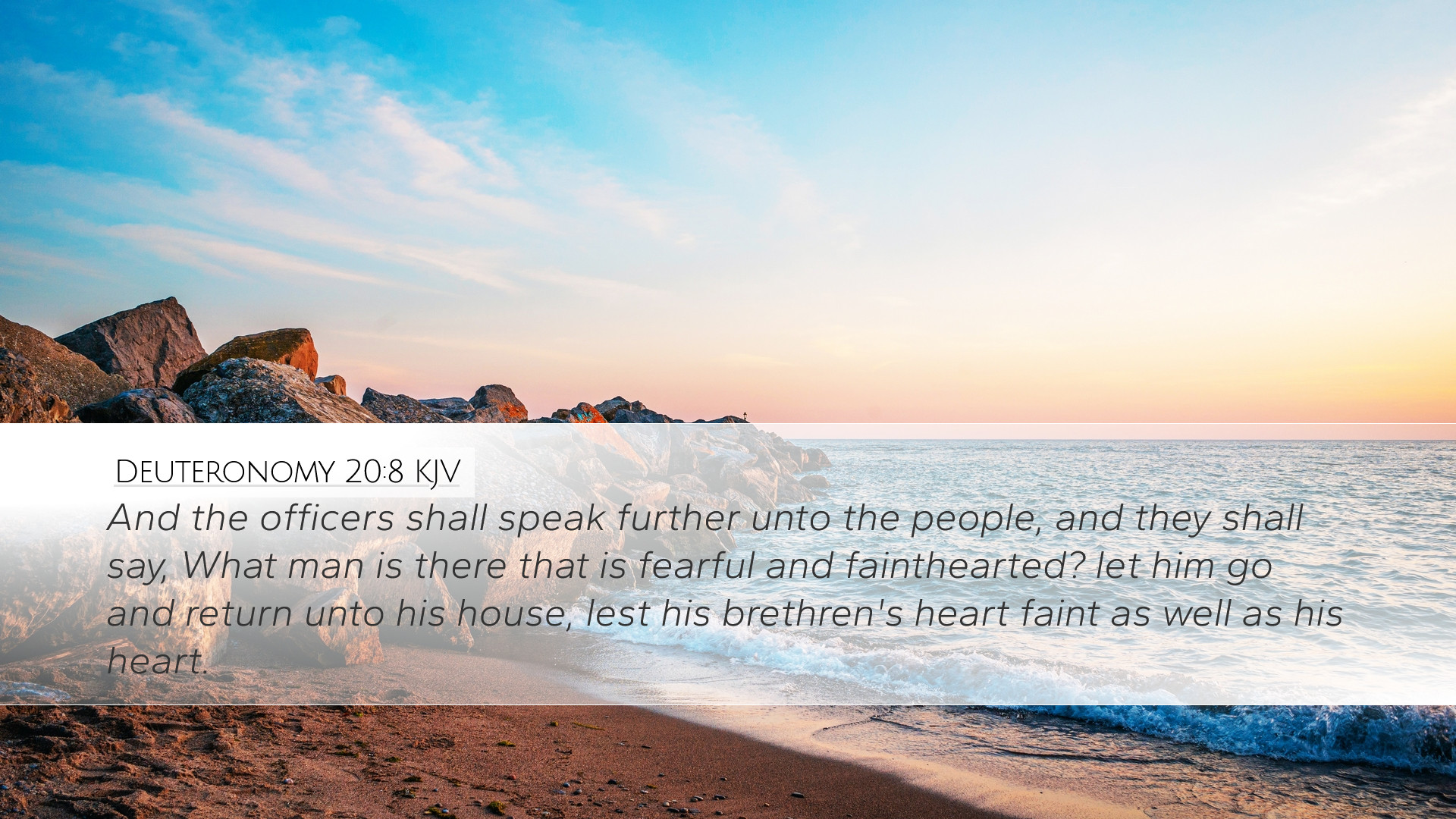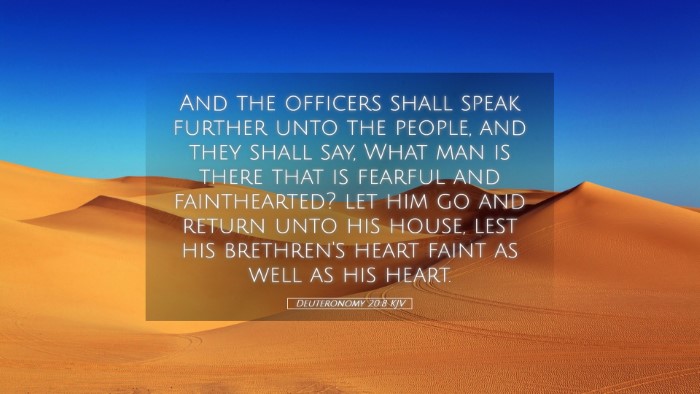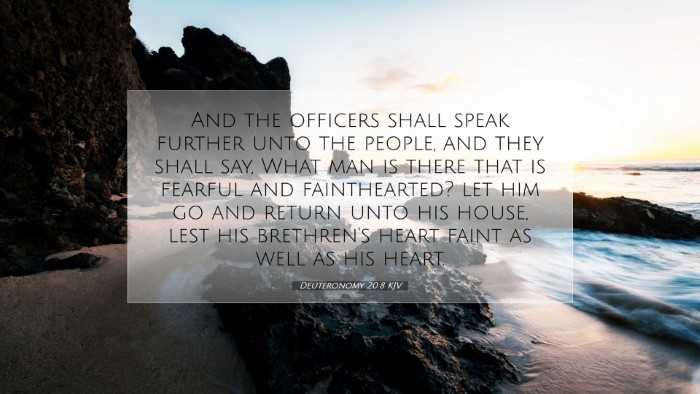Commentary on Deuteronomy 20:8
Verse Context: Deuteronomy 20:8 states, "And the officers shall speak further unto the people, and they shall say, What man is there that is fearful and fainthearted? let him go and return unto his house, lest his brethren's heart faint as well as his heart." This verse is part of Moses' instructions to Israel regarding warfare, emphasizing the need for courage among the ranks of the military.
Exegesis of the Text
Matthew Henry's Commentary: Henry emphasizes the importance of a fearless and steadfast heart among those called to battle. He observes that fear is contagious; a fearful soldier can diminish the courage of others. He advises leaders to identify and release those who exhibit terror, thereby preserving the morale of the larger group to face the challenges ahead.
Albert Barnes' Notes: Barnes further elaborates that the decree effectively recognizes human emotion and mental state in communal endeavors. Fear, when unchecked, can lead to a systemic collapse of confidence within the ranks. He interprets the directive as practical wisdom—allowing the fearful to return home is not about fostering cowardice but ensuring that those protecting their nation do so with full commitment and bravery.
Adam Clarke's Commentary: Clarke identifies the social implications of this instruction. He points out that in ancient Israel's culture, facing the enemy required unity and collective bravery. The provision to send fearful soldiers home acknowledges the psychological realities of warfare and the need for solidarity among those who remain. This demonstrates God's understanding of human nature and the psychological stresses of battle.
Theological Implications
- God's Care for His People: This scripture illustrates God's concern for His people. By addressing the fears of individuals, God shows His desire for a united front among His followers. The fear of a few can weaken the resolve of many, and thus, a community must be encouraged to act decisively without fear.
- Valuing Mental Health: The acknowledgment of fear in battle suggests a biblical precedent for addressing mental health issues. Just as fear can be a legitimate impediment to service in warfare, it can also be a factor in the lives of believers today.
- The Nature of Courage: Courage is not the absence of fear but the determination to act in spite of it. This passage invites reflections on what constitutes true bravery, urging individuals to consider their inner resolve before engaging in significant commitments.
Practical Applications for Ministry
For pastors and church leaders, this verse can be a source of wisdom in understanding congregational dynamics. Recognizing that fear can exist within a congregation is crucial for fostering community. Leaders must create an atmosphere where congregants feel safe to express their concerns and fears, thus enabling healing, support, and restoration.
Moreover, this text provides a framework for evaluating readiness for ministry or church-related tasks. Just as soldiers were excused from battle, church members who feel unprepared or fearful about a role should be allowed to reconsider their involvement so that they can serve effectively when they are ready.
Concluding Reflections
Deuteronomy 20:8 is a powerful reminder of the necessity of courage in communal efforts, be it in warfare or within the church. As Henry, Barnes, and Clarke provide their insights, it becomes evident that Scripture is not only concerned with the physical readiness of individuals but also with their emotional and mental states.
Thus, while the specifics of ancient warfare may differ vastly from modern-day challenges faced by believers, the underlying principles of courage, community, and caring for the emotional heart of the body of Christ remain profoundly relevant. Pastors and theologians are called to apply these lessons to lead their congregations with compassion and strong leadership that encourages open discussions about fear and confidence.


